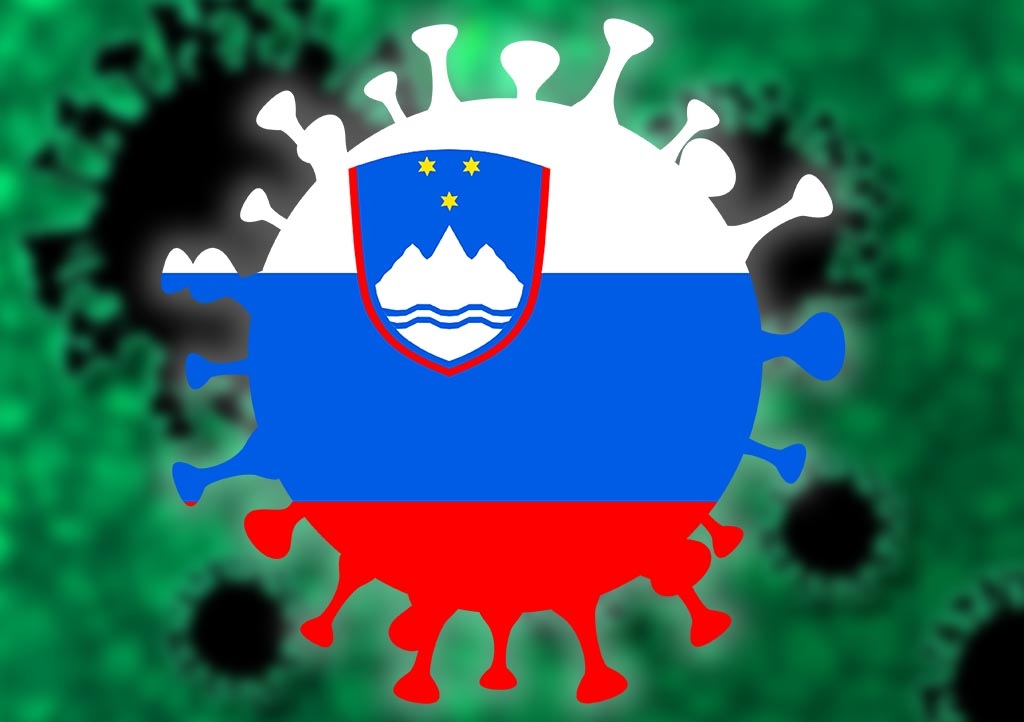By UKOM
Marta Grgič Vitek, the national coordinator of the vaccination programme at the NIPH, presented the results of vaccination in the country.
5,989 PCR tests were carried out day before yesterday, 1,112 persons tested positive. The share was 18.6 percent. 24,688 rapid tests were carried out. There are currently 10,310 active COVID-19 cases in the country. The seven-day average number of confirmed cases is slightly higher than yesterday, i.e. 737 (716 the day before), as per the published data of NIJZ. 444 Covid patients were hospitalised, of whom 83 are in intensive care units. 7 patients died, all in hospitals.
The following municipalities stand out in terms of new infections recorded yesterday: Celje (36), Domžale (33), Kranj (21), Jesenice (17), Trbovlje (21), Litija (20), Zagorje ob Savi (16), Nova Gorica (14), Sežana (27), Koper (33), Izola (12), Piran (17), Ljubljana (138), and Maribor (56).
To date, 215,475 doses of the Pfizer vaccine, 28,800 doses of the Moderna vaccine, and 88,800 doses of the AstraZeneca vaccine have been delivered to the country, which is a total of 333,075 doses, said Grgič Vitek. Based on the data entered in the electronic register of vaccinated persons, 174,164 people or 8.3 percent of the population received one shot of the two-dose regimens, and 83,801 people or 4.0 percent of the population were fully vaccinated by 14 March. Pursuant to the data in the register, a total of 257,965 doses were administered; 313,185 doses were delivered
There are 2,010 side effects from the Pfizer vaccine, 22 from Moderna and 471 from AstraZeneca. By definition, serious side effects after vaccination include: (i) a life-threatening condition or disease, (ii) hospitalisation or prolongation of hospitalisation, (iii) permanent impairment, (iv) congenital anomaly, (v) other clinically relevant conditions and death.
From the beginning of vaccination until and including 14 March, the NIPH received 16 reports of serious side effects from those who received the Pfizer vaccine, which is 0.8 percent of all reports, and 1 report of a serious adverse event from those who received the AstraZeneca vaccine, which is 0.2 percent of all reports. However, there have been several reports with regard to the Pfizer vaccine, intended primarily for the elderly. Seven elderly people with a number of chronic conditions had died after receiving the vaccine. The Commission at the Ministry of Health considered three cases, and concluded that it is highly unlikely they are linked to the vaccine; four cases are in the phase of investigation. Four reports of serious adverse events requiring hospitalisation, namely (i) collapse a few hours after vaccine administration upon overcoming COVID-19, (ii) transient ischemic attack, (iii) chest pain, (iv) leukemia/lymphoma were also considered. Here again, it was determined that a link to the vaccine is highly unlikely. There were 5 addition hospitalisations, for which data is still being collected. They involve cases of (i) venous thrombosis with pulmonary embolism 14 days after receiving the vaccine, (ii) anaphylaxis following vaccination, (iii) stroke 13 days following vaccination, (iv) hand paresis, and (v) speech problems.
Currently, the vaccination strategy for the mRNA-based vaccines, i.e. Pfizer and Moderna, is being carried out for:
– people aged 75 and over (Pfizer also for immobile people),
– elderly nursing-home residents who have not yet been vaccinated,
– healthcare professionals aged 65 and over who have not yet been vaccinated,
– for medical students aged 16 to 18 (Pfizer vaccine) undergoing clinical practice in healthcare facilities,
After vaccinating those aged 75 and over, the Pfizer and Moderna vaccines will be used to vaccinate people aged 70 and over, and particularly vulnerable chronic patients, regardless of age, as well as the next group aged 65 and over.
Currently, the AstraZeneca vaccine is used for:
- particularly vulnerable chronic patients aged 18 to 64 (also elderly who express an interest in receiving the vaccine asap), including immobile persons, diplomats, and others in line with the strategy,
- healthcare professionals and assistants aged 18 to 64 who have not yet been vaccinated,
- institutionalised persons (persons and employees in social protection institutions, CIRIUS, prisons, and other similar institutions) aged 18 to 64 who have not yet been vaccinated,
- – employees and pupils in special needs schools, aged 18 to 64, who have not yet been vaccinated,
- – employees in education who are in direct contact with children, pupils, and students, according to the instructions of the ministry.
The description of these two strategies partly explains the differences arising between the vaccinated groups in the country relative to the vaccination centres. 55 percent of the population within the age group 80-84 are vaccinated; therefore, the remaining part (45 percent) have not yet decided to be vaccinated, or have recovered from the disease.
Source: gov.si

